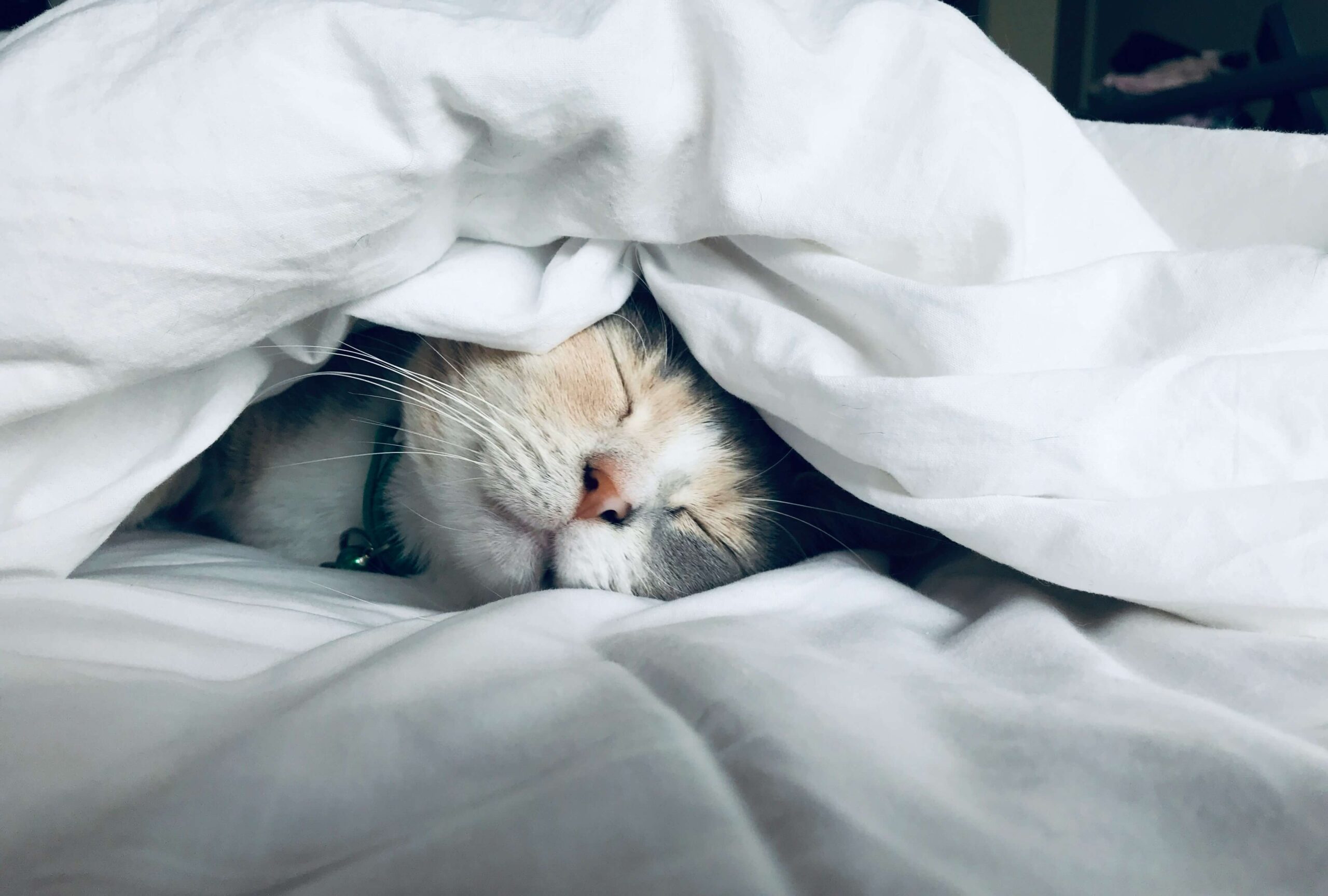Sleep is essential and affects our physical, mental, and social health. It is considered one of the most essential functions of the body and directly impacts how we feel on a day-to-day basis.
We all do it and we all need it – but what is sleep, and why is it important?
What is sleep?
Sleep is “the resting state in which the body is not active and the mind is unconscious.”
We spend around one-third of our time asleep – it is as important to us as eating and drinking. Without sleep, we would not be able to form memories or even learn anything new – we would also find it hard to concentrate or communicate.
What happens during sleep?
Once asleep, we are unconscious and unaware of what is going on around us.
As we continue to sleep, we pass through various stages of sleep:
Rapid Eye Movement (REM) sleep
REM sleep comes and goes during the night.
It makes up about a fifth of our overall sleep. During this time, our brain is still highly active. Our eyes move quickly from side to side, and we dream. Although our brain remains active, our muscles are relaxed.
Non-REM sleep
This stage of sleep is where we are unconscious, and our brain is quiet, but our body tends to move around. When in non-REM sleep hormones are released into the bloodstream and our body looks to repair itself after the day.
There are 3 stages of non-REM sleep:
- Pre-sleep – our muscles relax, our heart beats slower and our body temperature decreases
- Light sleep – this is the stage where we can wake up easily without feeling confused
- Slow wave sleep – our blood pressure falls, we may also talk or sleep-walk. During this stage, we may find it more difficult to wake up and if we do, we will feel confused
During the night, we move between REM and non-REM sleep around five times, we tend to dream more towards the morning.
On a normal night, we would wake up for a minute or two every couple of hours – we tend not to be aware that we have woken up unless it is due to an outside factor such as anxiety, noises, or a partner snoring.
Why do we need sleep?
Our brain needs sleep to function efficiently, the neurons in our brain need sleep to communicate.
Sleep affects every part of our body – organs such as the brain, heart, lungs, and systems such as our metabolism, immunity, mood, and our ability to fend off diseases.
How does sleep affect our mental health?
There is a close connection between sleep and our mental health.
Having a mental health condition can cause poor sleep, and having poor sleep can affect your mental health.
Lots of things can affect our sleep, the below are the most common:
- Stress or worry
- A change in noise in our bedroom
- A change in routine, e.g., jet leg or working night shifts
- The over-consumption of caffeine or alcohol
- Physical or mental health problems
- Side effects of medication
Our mental health can affect our sleep in many ways, such as the below:
- Anxiety – this can cause your thoughts to race at bedtime, which may make it difficult to sleep
- Depression – this can lead to oversleeping which may include sleeping late at night or during the day. Depression can also cause insomnia, a condition that can make it tough to fall asleep or stay asleep
- Post-traumatic stress disorder (PTSD) – this can cause nightmares or night terrors which may wake you up and/or make you feel anxious about falling asleep
- Mania – this can make you feel happy or energetic, so you might not feel tired or want to sleep
- Medication – some medications can have side effects, including insomnia, nightmares, or oversleeping. Stopping certain medications may also make it difficult to sleep
How to improve your sleep hygiene
If you struggle with sleep, there are several ways you can look to improve it:
- Create a relaxing sleep routine – give yourself the chance to unwind and signal to your brain that it is time to sleep
- Relax in a restful environment – you may be able to sleep a little better if your bedroom is quiet, peaceful, and dark
- Stick to a routine – try your best to go to sleep and wake up at the same time every day
- Consistent exercise – move your body regularly, but try to avoid exercise before bedtime as it may cause you to become overstimulated
- Avoid caffeine and alcohol before bed – both can prevent you from falling asleep and getting restful sleep
- Avoid screentime in bed – try to avoid doing anything other than sleeping in bed, e.g., do not watch TV or use your phone in bed. The light from screens can harm sleep by stimulating the brain
- Keep track of your anxiety – put your mind at rest by writing your worries down
- Self-care – your wellbeing is essential; you can read about how to incorporate self-care into your routine here
- Do not stress – if you cannot sleep, do not worry – avoid putting too much pressure on yourself and get up. You can focus on relaxing activities such as reading, or listening to music, to help you feel ready for sleep
Thank you for reading!
We hope we have been able to help you understand sleep and its effect on your mental health.
You can read more about the positive impact of sleep on our mental and physical health here.
Connect with us on social media – you can find us on Facebook, Twitter, LinkedIn or Instagram.
References:
https://www.rcpsych.ac.uk/mental-health/mental-illnesses-and-mental-health-problems/sleeping-well
https://www.ninds.nih.gov/health-information/public-education/brain-basics/brain-basics-understanding-sleep
https://www.mind.org.uk/information-support/types-of-mental-health-problems/sleep-problems/about-sleep-and-mental-health/
https://www.mentalhealth.org.uk/explore-mental-health/a-z-topics/sleep-and-mental-health
Image by Kate Stone Matheson on Unsplash.
